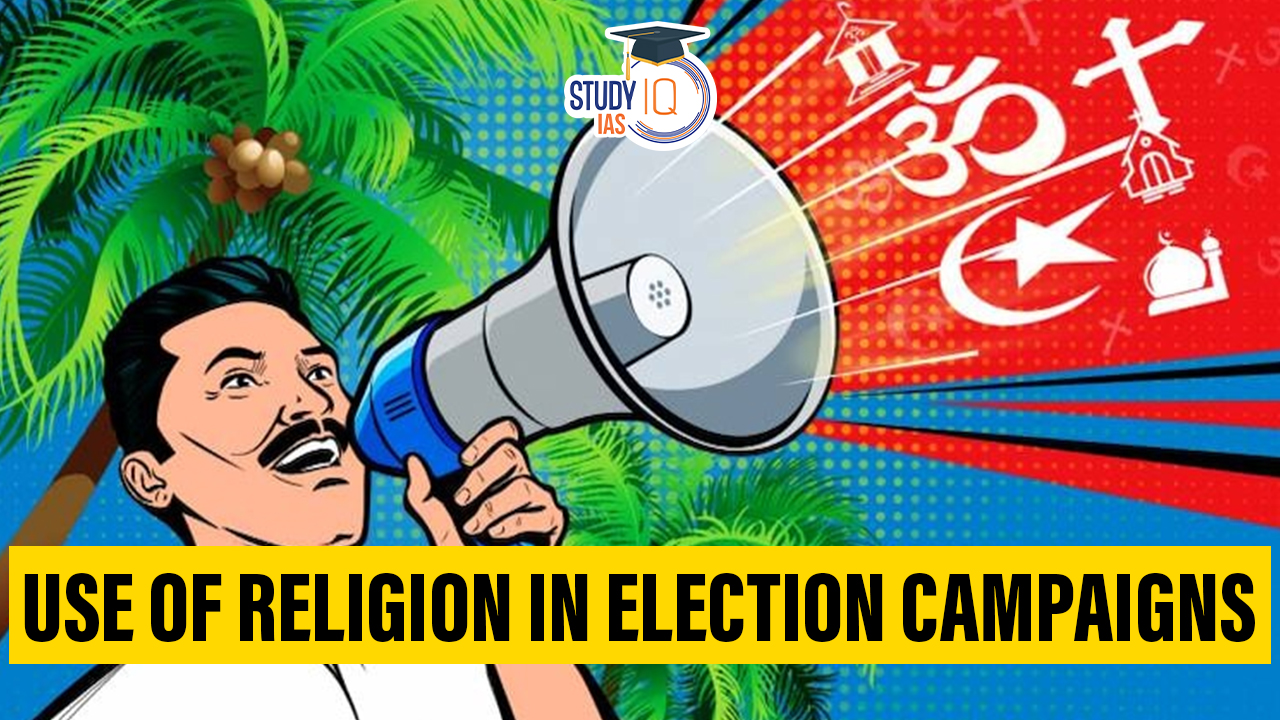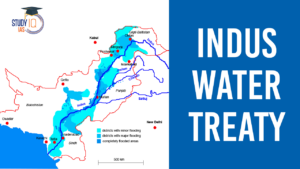Table of Contents
Context: The Bharatiya Janata Party (BJP) lodged a complaint with the Election Commission of India (ECI) against Rahul Gandhi for hurting the sentiments of Hindus through his remark on ‘shakti’.
Laws and Regulations Regarding Religion in Indian Elections
The Representation of the People Act, 1951 (RP Act)
- Section 123(3): Prohibits appeals by a candidate or anyone with the candidate’s consent to vote or refrain from voting based on religion, race, caste, community, or language as a corrupt electoral practice.
- Section 123(3A): Denounces attempts to promote enmity or hatred among citizens on the grounds of religion, race, caste, community, or language during elections.
- Consequences: Violators can be barred from contesting elections for up to six years for engaging in corrupt electoral practices.
Model Code of Conduct (MCC)
- Origin and Enforcement: Evolved through political parties’ consensus and strictly enforced since the 1990s, despite lacking statutory backing.
- Key Provisions: Prohibits actions that could exacerbate community differences, appeal to caste or communal feelings for votes, or use places of worship for election propaganda.
Historical Context
- Before 1961: The term ‘systemic’ in Section 123(3) required the appeal to be part of a systematic campaign to be considered corrupt.
- 1961 Amendment: Removal of ‘systemic’ broadened the scope, making any appeal based on religion, race, caste, or community grounds for electoral disfavour.
- Enforcement and Convictions: Notable conviction includes Shiv Sena’s Bal Thackeray in 1995. Other violations typically result in short campaign bans.
Supreme Court Ruling
- Case: Abhiram Singh vs. C. D. Commachen (2017).
- Decision: By a majority, expanded the interpretation of Section 123(3) to include appeals to the voters’ religion as a corrupt practice.
- Implication: Elections are deemed a secular exercise, separating religious considerations from the electoral process.
Recommendations for Political Conduct
- Addressing Grievances: Parties and candidates should focus on policy solutions for grievances rooted in religion, caste, community, or language without compromising secular values.
- Campaign Practices: Urges avoidance of religious canvassing and endorsements by religious leaders to prevent the mingling of politics and religion.
- Enforcement and Accountability: Calls for swift action by the Election Commission of India (ECI) and courts against law violations to protect the secular fabric of politics.


 UDAN Scheme, Objectives, Funding and Ach...
UDAN Scheme, Objectives, Funding and Ach...
 Indus Water Treaty 1960 Suspended by Ind...
Indus Water Treaty 1960 Suspended by Ind...
 5 Years of SVAMITVA Scheme and Its Benef...
5 Years of SVAMITVA Scheme and Its Benef...





















